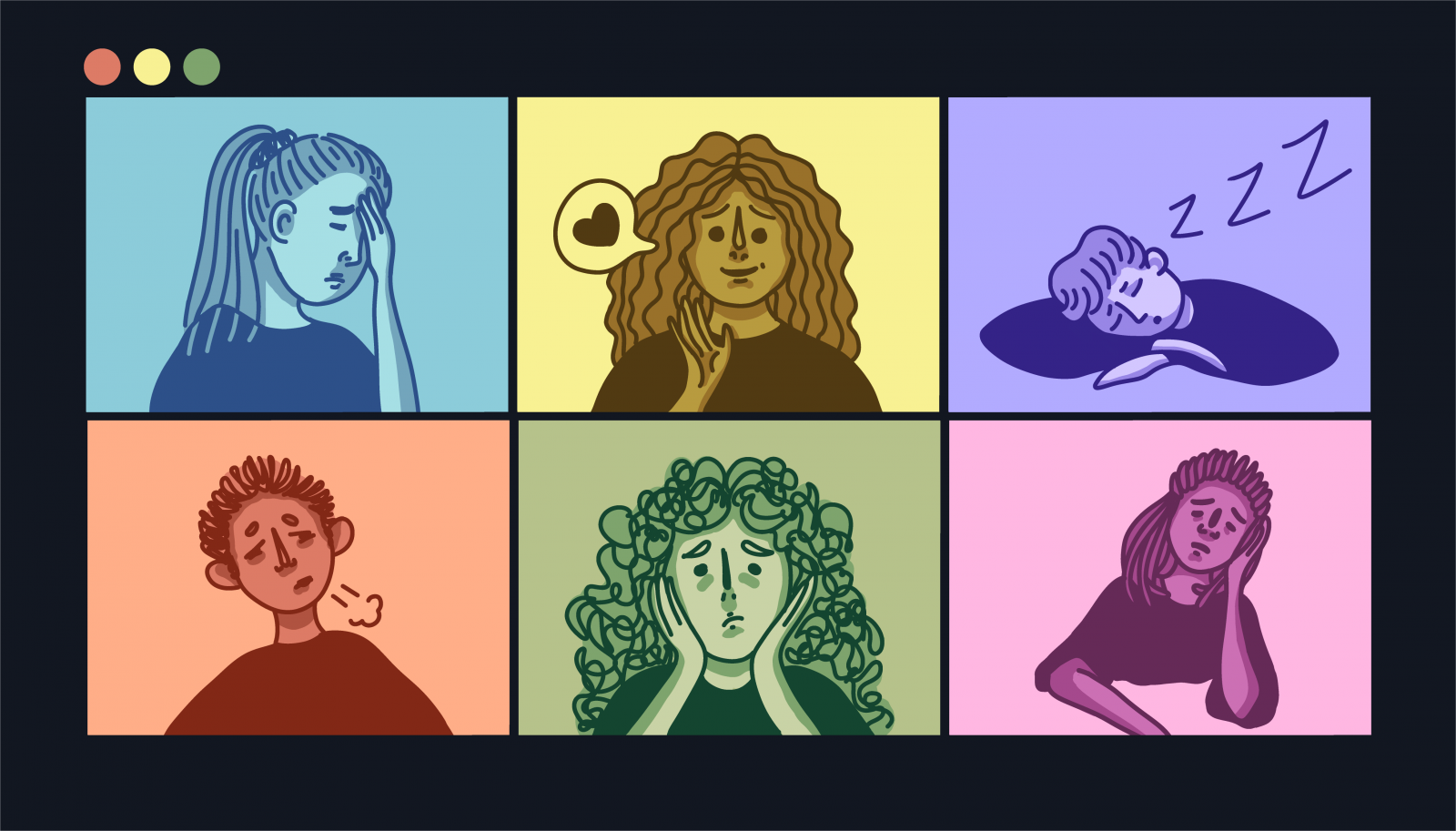On a Friday morning, two seminar teachers asked their students: “How are you really doing? What’s going on with you?” Simple questions like these are usually of little importance, but in the right context, with a need to voice some thoughts out, it can exceed its initial irrelevance and trigger unexpected conversations.
“Let’s do a check-in. Someone should start by saying how they feel and how they’ve been doing lately, and then ask someone else the same question. If you don’t want to, you can just pass it on to someone else.”
For most of us, these teachers were probably the first ones that dedicated time at the beginning of class to really discuss how students are doing and what they are going through. And they did this despite the fact that they, like other lecturers and teachers, are struggling as well. They are on the other side of the story, but all it took was a little time, willingness, and the act of listening, in order to spark up a conversation that soothed a lot of us and facilitated a collective sense of empathy, despite us being in different corners of the world.
For me, that was one of the first times I fully acknowledged the collective trauma we are currently experiencing. “We are all grieving”, someone said, and most of us nodded to it. I am seeing the effects in me, in my friends, and now I got to see it in my IBCoM peers as well.
Students struggling with mental health is definitely nothing new. The problem has always been there, some have always been struggling more than others, but the you-know-what situation is making everything more visible than ever. It is easy to forget that others are experiencing similar feelings and thoughts as you are. And now, it feels like the long-term psychological effects are starting to kick in – we cannot really name it, we cannot really wrap our heads around it, but most of us can feel it’s there.
Let’s have a look at some research done in the past year. Almost one year ago, a short article addressed the need for studies to be conducted in order to encourage immediate action for tackling students’ mental health problems. Since then, there have been a myriad of surveys administered to students around the world, that aimed to find out what the mental impacts of the recent changes in our lifestyles are.
Let me lay out some of the results for you: two-fifths of Chinese college students experienced anxiety according to Fu et al. (2021). Depression, anxiety and distress were experienced by almost half of French students in a sample collected by Essadek & Rabeyron in early April 2020. A survey administered by Kaparounaki et al (2020) revealed that students in Greece experienced increased depression, anxiety and suicidality.
So, the studies are there, and they prove what we all know already. But they focus on short-term effects only, simply because not enough time has passed to see how everything will unfold.
Now, how do we tackle the short- and long-term effects of this pandemic, in the years in which we were supposed to feel at our best, after a year of little to no betterment of the general situation? I don’t have a complete answer to this question – far from it; but me and some of my peers came up with a few solutions that might help soothe others that need it.
The online spaces that we find ourselves in on a daily basis should facilitate moments in which students and teachers can come together and check in with each other. There are also plenty of online therapy services that could help (international) students avoid the long waiting lines they usually come across when trying to get to a psychologist. Some options could be Mindlercare, Betterhelp, along with this list. Mental health chatbot apps such as Woebot are available too.
And of course, there is always the option of meeting friends, teachers, classmates, as much as restrictions allow. Most importantly, remember that it’s okay to ask for help, and it’s okay to acknowledge that you might not feel perfectly fine. By being open about it, we have greater chances to keep a sense of community going on, as we come together to find solutions that work for us.
Author: Bianca Raicu
Editor: Gwendolyne Cheung
Illustrator: Ira Lizenko
Sources:
Essadek, A., & Rabeyron, T. (2020). Mental health of French students during the Covid-19 pandemic. Journal of affective disorders, 277, 392-393.
Fu, W., Yan, S., Zong, Q., Anderson-Luxford, D., Song, X., Lv, Z., & Lv, C. (2021). Mental health of college students during the COVID-19 epidemic in China. Journal of affective disorders, 280, 7-10.
Grubic, N., Badovinac, S., & Johri, A. M. (2020). Student mental health in the midst of the COVID-19 pandemic: A call for further research and immediate solutions. International Journal of Social Psychiatry, 66(5), 517-518.
Kaparounaki, C. K., Patsali, M. E., Mousa, D. P. V., Papadopoulou, E. V., Papadopoulou, K. K., & Fountoulakis, K. N. (2020). University students’ mental health amidst the COVID-19 quarantine in Greece. Psychiatry research, 290, 113111.


